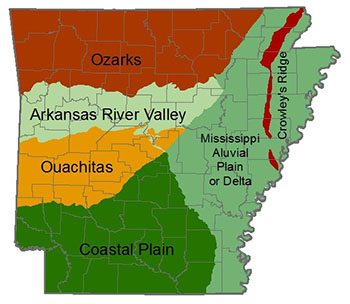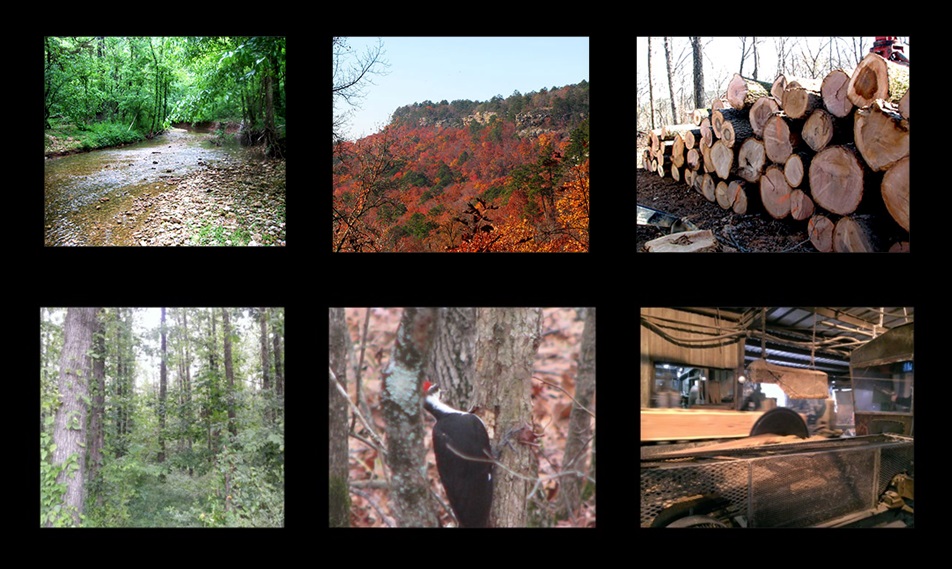Community Forestry
Forests in urban areas are unique and important in Arkansas. These forests could include parks, neighborhoods, downtown areas, and others.
Learn more about community forestry.Jacob Hackman
Assistant Professor - Forestry Management & Forestry Extension
Phone: 501-910-4553
Email: jhackman@uada.edu
Jaret Rushing
Forestry Extension Instructor
2346 University Ct.
Monticello, AR 71655
Phone: 870-489-0816
Email: jrushing@uada.edu
Arkansas' forests provide a diversity of services and other important benefits including: timber production, wildlife habitat, recreational opportunities, watershed protection, and aesthetic values.
Some Interesting Facts About Arkansas' Forestland

Arkansas' Natural Regions map.

Arkansas forest resources generate many questions and information needs for those who manage these lands. On the pages that follow, you will find this and other information about managing your woodlands for forest health, productivity, wildlife, environmental quality and many other topics. Specific information on current timber market prices, management operations, support tools for management and other topics can be found here.
Forests in urban areas are unique and important in Arkansas. These forests could include parks, neighborhoods, downtown areas, and others.
Learn more about community forestry.Forest health is important to keeping Arkansas' forestlands vigorous, resistant to environmental stresses and productive.
Learn more about forest health.Properly managed pine and hardwood woodlands help landowners better achieve goals and maximize forest outputs.
Learn more about managing woodlands.
Arkansas' timberlands produce an array of versatile and valuable timber-based resources.
Learn more about marketing timber products.Find out what general timber market conditions are for north and south Arkansas.
See the latest timber price report.Did you know that women landowners, including agriculture and forest land, are the fastest growing population of landowners?
Resources for women woodland owners.